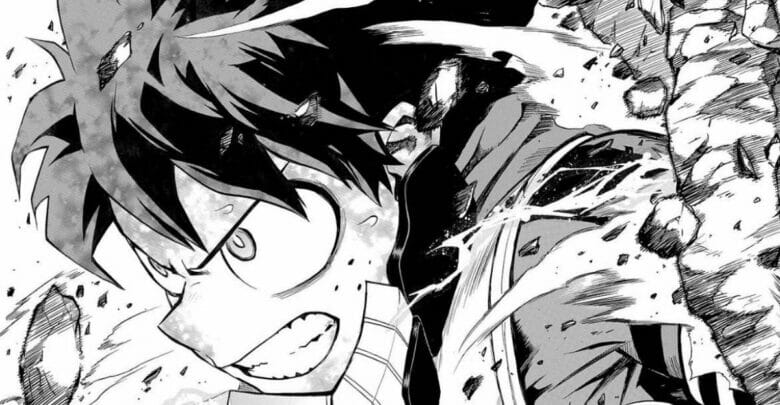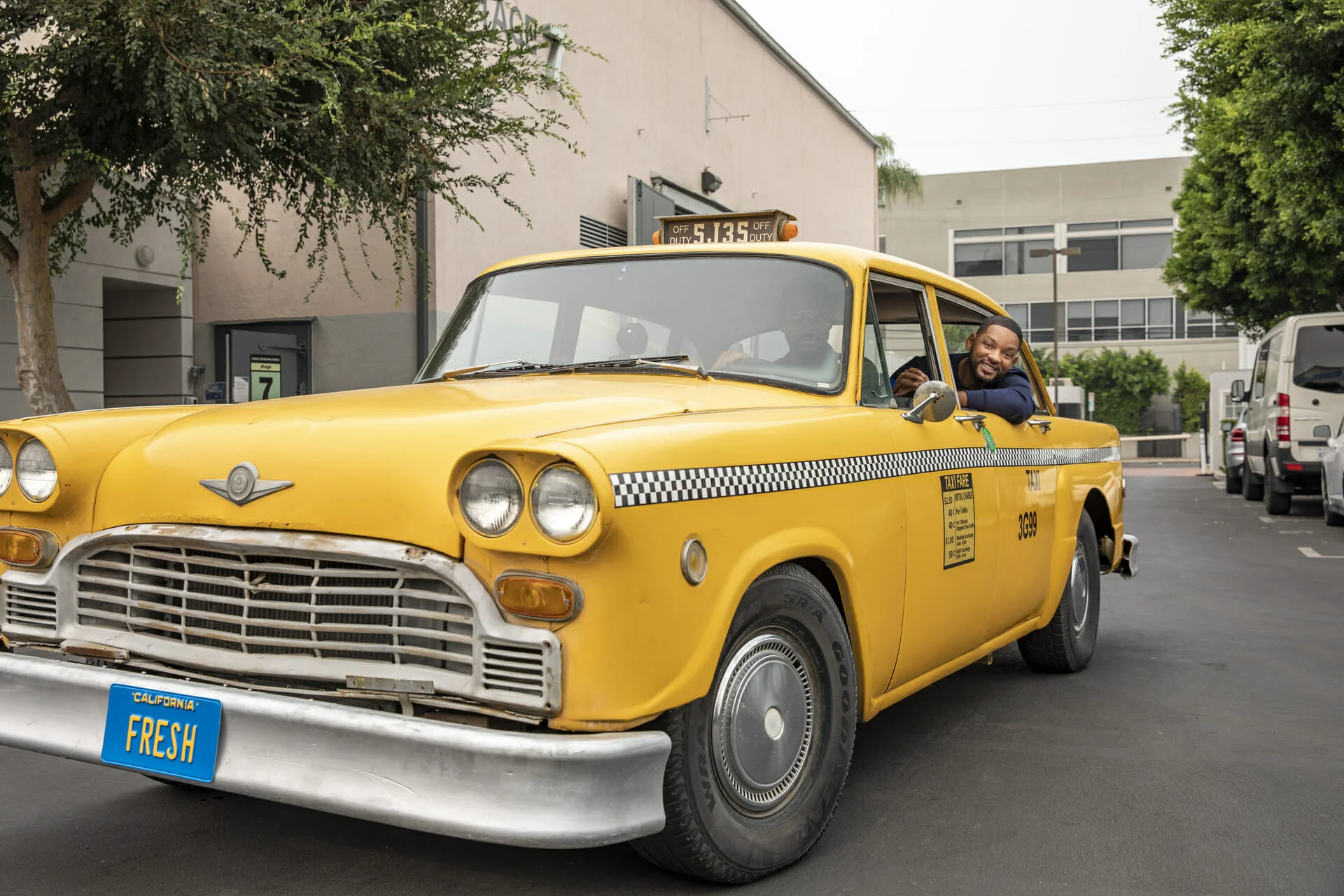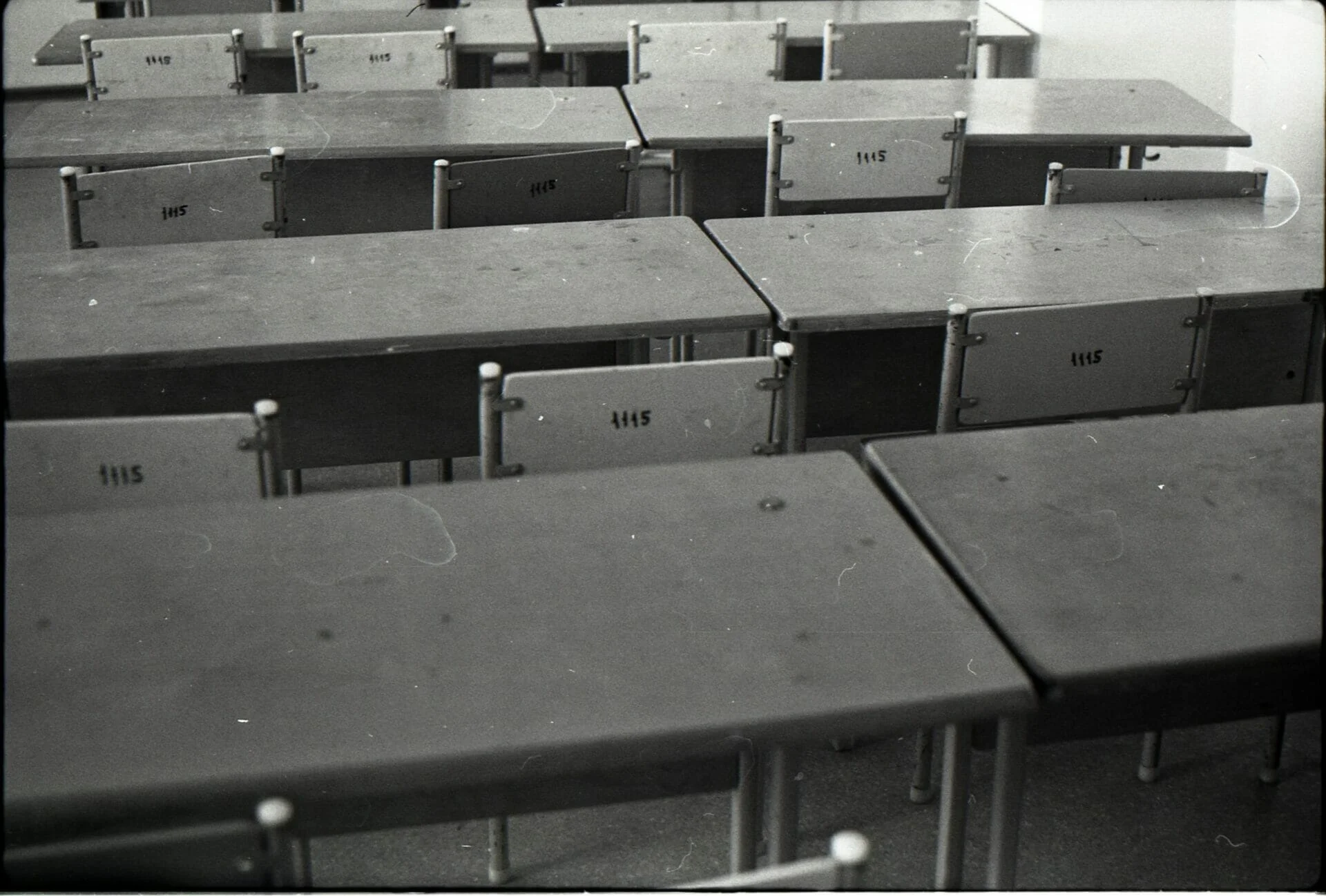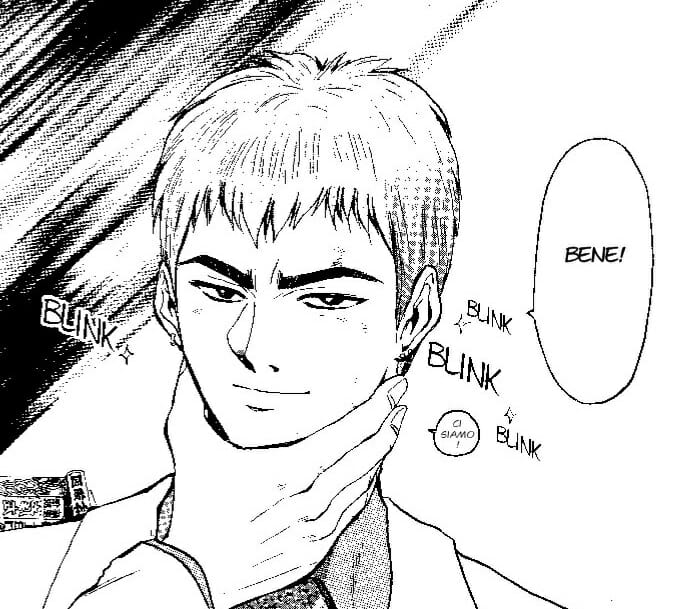
GTO - Great Teacher Onizuka is a cheeky critique of Japanese society
Author
Year
“I want to be a teacher like that, that students come to for help.
An educator… a guide… a friend.”
When Eikichi Onizuka decided to become a teacher, his only motivation was the thought of being around beautiful schoolgirls. But when faced with the reality of the Kichijoji private institute, his true vocation and worth makes itself apparent.
Starting in 1997, Tōru Fujisawa‘s Great Teacher Onizuka – shortened as GTO – was an immediate success. As a mix of over-the-top action sequences and hilarious comedy, it became popular both in Japan and abroad. However, behind the nonsense shenanigans of its homonymous protagonist, the story holds a meaningful critique of the Japanese educational system.
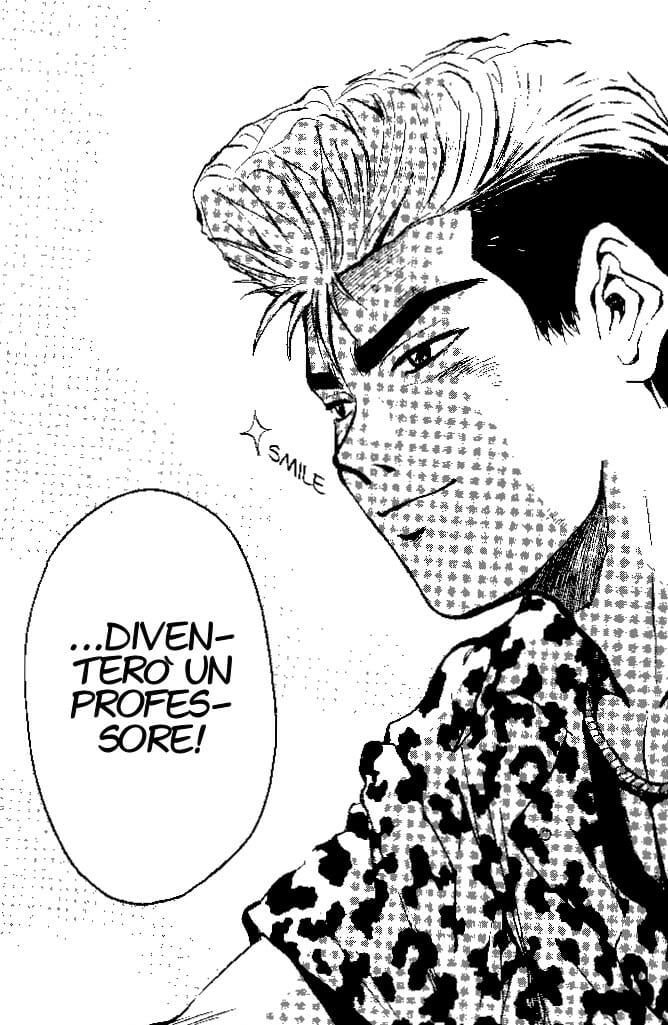
Onizuka is the epitome of the unconventional teacher
Eikichi Onizuka is unprofessional, crass and shameless – the least qualified person to be a teacher. A former member of a motorbike gang, he cannot hold onto a job for more than a couple of days. So when he arrives at the prestigious middle school called Kichijoji, no one expects him to last long. Not when assigned to the most infamous class of the institute, which has seen many teachers fired. And yet, thanks to his unorthodox methods, Onizuka will prove to be more than up to the task.
The theme of education is the focus of many memorable stories, such as Dead Poets’ Society. Similar narratives stay relevant because school is a reflection of society and this is where GTO finds its context. Its beginning misleads the reader, presenting Onizuka solely as a degenerate with a sub-par education and a hooligan reputation. All flaws that stand out in the new workplace, where he is belittled by teachers and students alike. And yet there is more to him than what meets the eye. A common trait with other shonen protagonists like Vash the Stampede in Trigun or Saitama in One Punch Man. While Onizuka might have many childish and borderline idiotic moments, he is also capable of surprising wisdom.
GTO‘s social satire
Comics as a literary genre have shown time and again their potential in conveying social critique. Prime examples are the provocative narratives of Broderies and Peau d’homme, among which GTO finds a place. To fully understand GTO‘s commentary, one must consider the period it is set in and the changes Japanese society faced during that time. In the 90s the declining birth rate, combined with the burst of the Japanese asset price bubble, had negatively affected the educational system. A higher and higher standard of excellence started to be expected from the students. In turn, the educational system became become more competitive than ever, since the early years of elementary school. At the same time, the priority of the schools was mostly about enforcing these standards of excellency, paying less attention to the students’ needs.
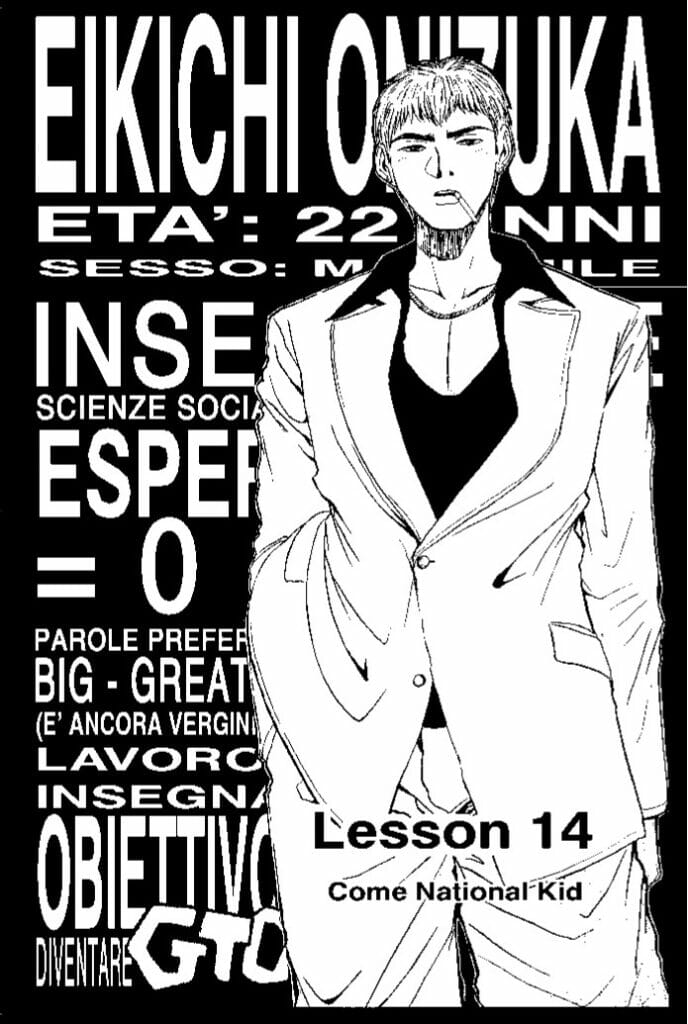
In GTO, the Vice-Principal Ochiyamada embodies this estrangement, as he prioritizes the good reputation of the school over the wellbeing of its students. Even at the cost of turning a blind eye to bullying, harassment and harmful academic expectations. All of this results in an increasing disconnection between teachers and students, and, on a broader level, between teenagers and adults: the source of most of the issues and storylines of the plot. A denouncement of serious social issues that echoes in Parasite, which condemns modern Korean society; even if it borders on a thriller, differently from GTO‘s upbeat and comedic narrative.
Additionally, the phenomenon of the bōsōzoku intertwined with this problematic context. They were biker gangs of high school students, active mostly during the ’80s and ’90s, which used to roam around the city with customized motorbikes, provoking public disturbance. These groups of young people rebelled against Japanese strict canons, often struggling with the police. A phenomenon that peaked in the 80s and represented an outlet for the youth that did not manage – nor wanted – to fit in. A recurrent topic in Fujisawa’s works, like his previous series Shonan Junai Gumi and Bad Company. In fact, both of them focus on Onizuka’s past life as a bōsōzoku member.
Life lessons in GTO
While Onizuka might not be an ideal teacher academically-wise, he excels at teaching how to approach life. And he does so by going out of his way to help his students, even if using peculiar methods. Like in the case of Noboru Yoshikawa, pushed by his female classmates to attempt suicide. Onizuka will help the boy by making his molesters understand the fear and shame Yoshikawa felt. With Kanzaki Urumi Onizuka he will use a different approach, since she is a manipulative child prodigy with a hatred for professors and a traumatic past. Onizuka will manage to shake her from her apathy towards life thanks to the aid of his biker friends and making her understand the value of life.
Since Onizuka has always been considered a problematic guy himself, he manages to understand closely and bond with his students. He refuses to adapt his personality to what society wants and thanks to this he becomes a role model for the ones who get to know him. At its core, GTO‘s philosophy is as simple as it is inspirational: to embrace one’s identity and live with no regrets.
GTO sold over 50 millions copies in 2007 and had a successful anime adaptation, as well as many live actions. In 1998, it won the Kodansha Manga Award for the shōnen category.
Tag




